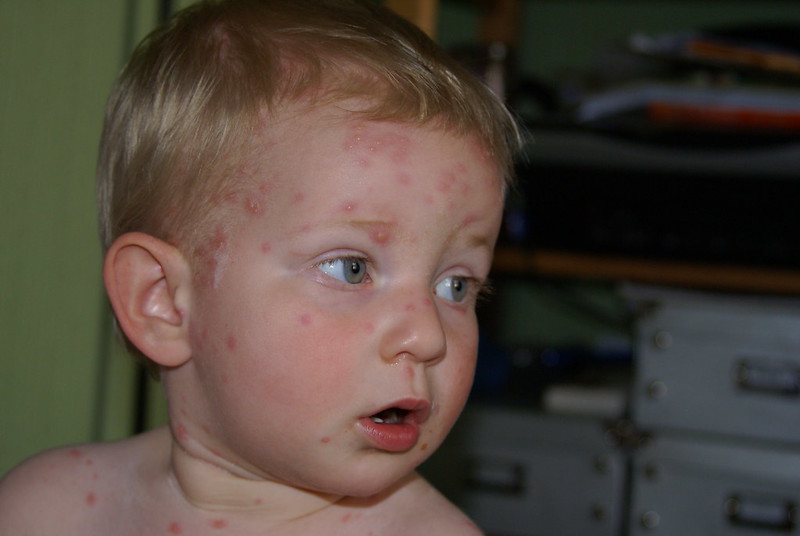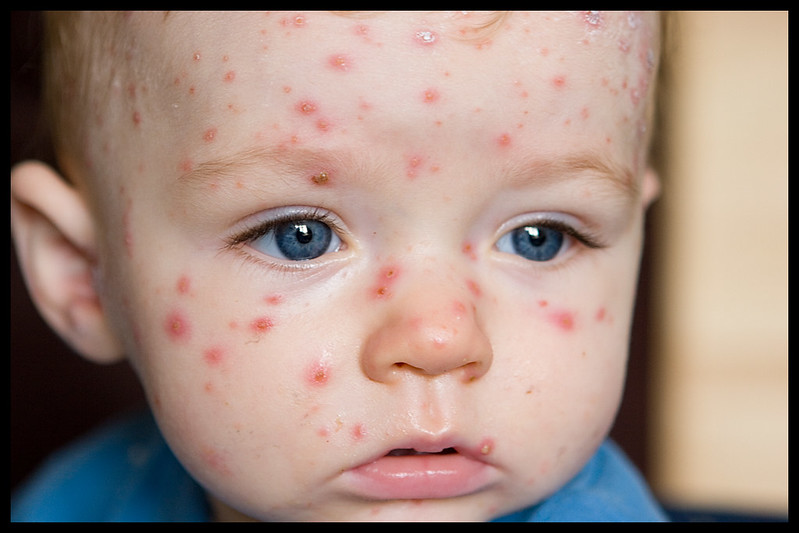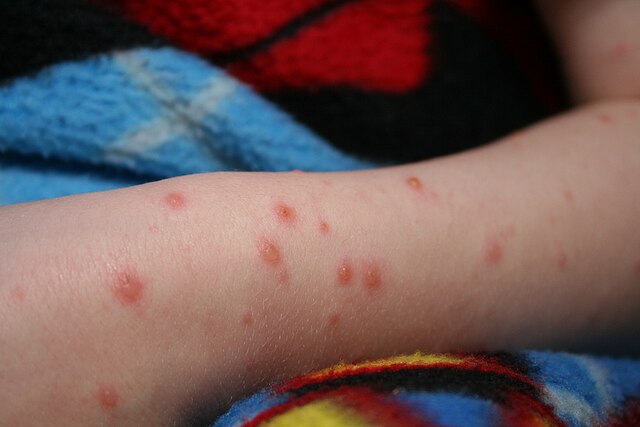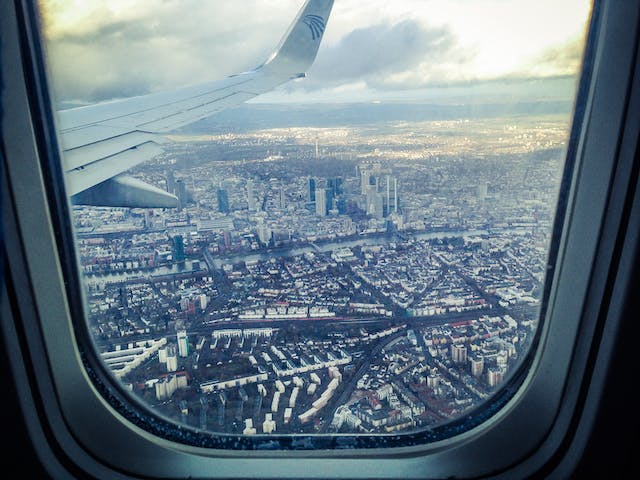Can You Fly with Chickenpox? Everything You Need to Know
Chickenpox is a common viral infection that affects millions of people worldwide. It is highly contagious and can easily spread from person to person through direct contact or airborne droplets. Many people wonder if it is safe to fly with chickenpox, especially if they have upcoming travel plans.
Understanding Chickenpox
Chickenpox is caused by the varicella-zoster virus and typically starts with a fever, headache, and a rash that develops into itchy blisters. The virus can be spread from a person with chickenpox to others who have never had the disease or been vaccinated against it. Chickenpox is most contagious from one to two days before the rash appears until all blisters have crusted over.
Air Travel Considerations
The risk of spreading chickenpox on a plane is low, but it is still possible. Airplanes have a recirculated air system that filters out most airborne particles, including viruses. However, if a person with chickenpox is coughing or sneezing, the virus can spread through the air and infect others. Additionally, if a person with chickenpox touches a surface, such as an armrest or tray table, and another person touches that surface and then touches their mouth or nose, they can become infected.
Key Takeaways
- Chickenpox is highly contagious and can easily spread from person to person through direct contact or airborne droplets.
- The risk of spreading chickenpox on a plane is low, but it is still possible through coughing, sneezing, or touching contaminated surfaces.
- It is recommended to postpone air travel until the person with chickenpox is no longer contagious to prevent the spread of the virus.

Understanding Chickenpox
Chickenpox, also known as varicella, is a highly contagious viral infection caused by the varicella-zoster virus. It is common in children under the age of 12, but can also affect adults who have not been previously infected or vaccinated.
Symptoms and Contagious Period
The symptoms of chickenpox typically include fever, headache, and a rash that develops into itchy, fluid-filled blisters. The rash usually starts on the face, chest, and back, and then spreads to other parts of the body. The blisters eventually form scabs and fall off within one to two weeks.
Chickenpox is highly contagious and can be spread through direct contact with the rash or by breathing in airborne droplets from an infected person’s cough or sneeze. The contagious period begins one to two days before the rash appears and lasts until all the blisters have formed scabs.
Chickenpox in Children vs. Adults
Chickenpox is generally a mild illness in children, but can be more severe in adults. Adults who contract chickenpox are at a higher risk of developing complications, such as pneumonia or encephalitis.
People with weakened immune systems, such as those undergoing chemotherapy or with HIV/AIDS, are also at a higher risk of developing severe complications from chickenpox.
In conclusion, chickenpox is a highly contagious viral infection that can cause discomfort and complications in some cases. It is important to take precautions to prevent the spread of the virus, such as washing hands frequently and avoiding contact with infected individuals. If you suspect you or someone you know has chickenpox, seek medical attention for proper diagnosis and treatment.
Air Travel Considerations
When it comes to air travel with chickenpox, there are a few important considerations to keep in mind.
Airlines and Chickenpox Policies
Different airlines have different policies when it comes to passengers with chickenpox. It is important to check with your airline before you travel to ensure that you are aware of their policy.
For example, British Airways states that passengers with chickenpox are allowed to fly, provided that all the spots are crusted over and the passenger feels well enough to travel. Qantas, on the other hand, requires passengers with chickenpox to provide a doctor’s certificate stating that they are fit to fly.
Other airlines, such as Ryanair, Norwegian, KLM, Etihad, EasyJet, Finnair, Aer Lingus, Jet2, Virgin, Virgin Atlantic, and Wizzair, do not have specific policies regarding chickenpox. However, they may require passengers to provide a fit to fly certificate or may refuse boarding if they believe the passenger poses a risk to other passengers.
Fit to Fly Certificates
A fit to fly certificate is a document issued by a doctor that confirms that a passenger is fit to fly. Some airlines require passengers with chickenpox to provide a fit to fly certificate before they are allowed to board the plane.
Passengers should check with their airline to see if a fit to fly certificate is required. It is important to note that some airlines may require the fit to fly certificate to be issued within a certain time frame before the flight.
Travel Insurance and Chickenpox
Passengers with chickenpox should also consider travel insurance. While some policies may cover cancellation due to illness, it is important to check the policy wording carefully.
Passengers should look for policies that specifically cover cancellation due to chickenpox or other infectious diseases. It is also important to check that the policy is regulated by the Financial Conduct Authority and that the provider is registered with the General Insurance Intermediary Services.

Health and Safety Precautions
Preventing Spread of Infection on Flights
When it comes to flying with chickenpox, it is important to take certain precautions to prevent the spread of the infection to others. Chickenpox is highly contagious and can easily spread through the air or by touching infected objects. Therefore, it is important to avoid close contact with others, especially those who are immune-compromised, such as infants, pregnant women, and individuals with weakened immune systems.
To prevent the spread of infection on flights, individuals with chickenpox should inform the airline and avoid flying until the contagious period has passed. They should also cover any blisters or sores with a bandage and practice good hand hygiene by washing their hands frequently with soap and water or using an alcohol-based hand sanitizer.
Managing Symptoms While Traveling
Traveling with chickenpox can be uncomfortable, but there are ways to manage the symptoms. Over-the-counter pain relievers such as acetaminophen or ibuprofen can help relieve fever and discomfort. Calamine lotion or oatmeal baths can help soothe the skin and reduce itching. Loose-fitting clothing made of natural fibers can also help reduce irritation.
It is important to note that individuals with chickenpox should not take aspirin as it can increase the risk of developing a serious condition called Reye’s syndrome.
If symptoms become severe or complications arise, such as bacterial infections of the skin, individuals should seek medical attention from a healthcare professional. They should also inform the airline staff if they require medical assistance during the flight.
In conclusion, while it is possible to fly with chickenpox, it is important to take proper precautions to prevent the spread of infection and manage symptoms while traveling. Individuals should consult with a medical professional before flying and follow their advice regarding treatment and vaccination.
Practical Tips for Traveling with Chickenpox
When to Postpone Your Flight
If you or your child has chickenpox, it is important to check with your airline before traveling. Some airlines require a fit to fly certificate from a doctor stating that you are not contagious. It is also important to consider the health of other passengers, especially if you are traveling with a toddler or pregnant women. If you or your child is still contagious, it is best to postpone your flight until you are no longer infectious.
Traveling with an Infected Child
If you are traveling with a child who has chickenpox, it is important to take extra precautions to prevent the spread of the virus. Make sure your child covers their mouth and nose when coughing or sneezing, and wash their hands frequently. It is also a good idea to bring along disinfectant wipes to clean surfaces that your child may come into contact with, such as tray tables and armrests.
Extending Your Stay Due to Illness
If you or your child becomes ill with chickenpox while on a family holiday abroad, it may be necessary to extend your stay until you are no longer contagious. Many travel insurance policies will cover the cost of extending your stay due to illness, so make sure to check your policy before you travel. If you need medical assistance while abroad, contact your travel provider such as Thomas Cook, Thomson, or TUI, who can help you find a local medical center.
Overall, it is safe for a child to travel with chickenpox as long as they are no longer contagious. By taking the necessary precautions and seeking medical advice if necessary, you can still enjoy your family holiday while keeping yourself and others healthy.

Legal and Regulatory Information
Airline Liability and Passenger Rights
When it comes to flying with chickenpox, there are several legal and regulatory considerations to keep in mind. Airlines have certain obligations to their passengers, and it is important to understand what these obligations are before booking a flight.
Airline liability for passengers with chickenpox can vary depending on the airline’s policies and the severity of the illness. Some airlines may require a medical certificate stating that the passenger is fit to travel, while others may refuse boarding altogether. It is important to check with the airline before booking a flight to ensure that you understand their policies and any potential liability.
Passengers with chickenpox may also have certain rights when it comes to flight cancellations or delays. In some cases, airlines may be required to provide compensation or alternative travel arrangements. Again, it is important to check with the airline and understand your rights before booking a flight.
Overall, passengers with chickenpox should be aware of their legal and regulatory rights when flying. By understanding these obligations, passengers can make informed decisions about their travel plans and avoid any potential legal issues.
Complications and Considerations
Potential Complications from Chickenpox
While chickenpox is generally a mild illness, it can lead to serious complications in certain individuals. For example, adults, pregnant women, and people with weakened immune systems are at a higher risk of developing severe symptoms and complications from chickenpox. In some cases, chickenpox can lead to pneumonia, encephalitis, or even death.
Furthermore, individuals who have had chickenpox are at risk of developing shingles later in life. Shingles is a painful rash that occurs when the varicella-zoster virus, which causes chickenpox, reactivates in the body. This can be particularly dangerous for older adults, as shingles can lead to long-term nerve pain and other complications.
Vulnerable Groups and Chickenpox Exposure
Infants who are too young to receive the chickenpox vaccine and individuals with weakened immune systems are particularly vulnerable to the complications of chickenpox. Therefore, it is important to take precautions to avoid exposing these groups to the virus.
In addition, individuals who have not been vaccinated against chickenpox may be at risk of contracting the illness if they come into contact with someone who has chickenpox. This is particularly concerning given the recent increase in outbreaks of measles, mumps, and rubella, which can be prevented through vaccination.
Overall, it is important to consider the potential complications of chickenpox and take appropriate precautions to prevent its spread, particularly among vulnerable populations.

Frequently Asked Questions
Are passengers with chickenpox permitted to board flights on major airlines?
Passengers with chickenpox are generally allowed to board flights on major airlines. However, it is recommended to consult with the airline before traveling as some airlines may have specific policies regarding contagious illnesses.
What are the airline policies regarding flying with contagious illnesses like chickenpox?
Airlines have different policies regarding flying with contagious illnesses like chickenpox. Some airlines may require a medical certificate stating that the passenger is fit to travel, while others may allow the passenger to travel as long as they are not displaying symptoms.
Is it safe for a child to travel by air if they have chickenpox?
It is generally safe for a child to travel by air if they have chickenpox. However, it is important to consult with a healthcare provider before traveling, especially if the child has a severe case of chickenpox.
Does travel insurance typically cover cancellations or delays due to chickenpox?
Travel insurance may cover cancellations or delays due to chickenpox, but it depends on the specific policy. It is recommended to review the policy carefully and contact the insurance provider for more information.
What precautions should be taken if traveling with a recent chickenpox infection?
If traveling with a recent chickenpox infection, it is important to cover all blisters and avoid contact with others as much as possible to prevent the spread of the virus. It is also recommended to carry a supply of medication and to consult with a healthcare provider before traveling.
Are there any specific restrictions for flying with chickenpox-related conditions such as shingles?
There may be specific restrictions for flying with chickenpox-related conditions such as shingles. It is recommended to consult with the airline before traveling and to carry a medical certificate stating that the passenger is fit to travel.








